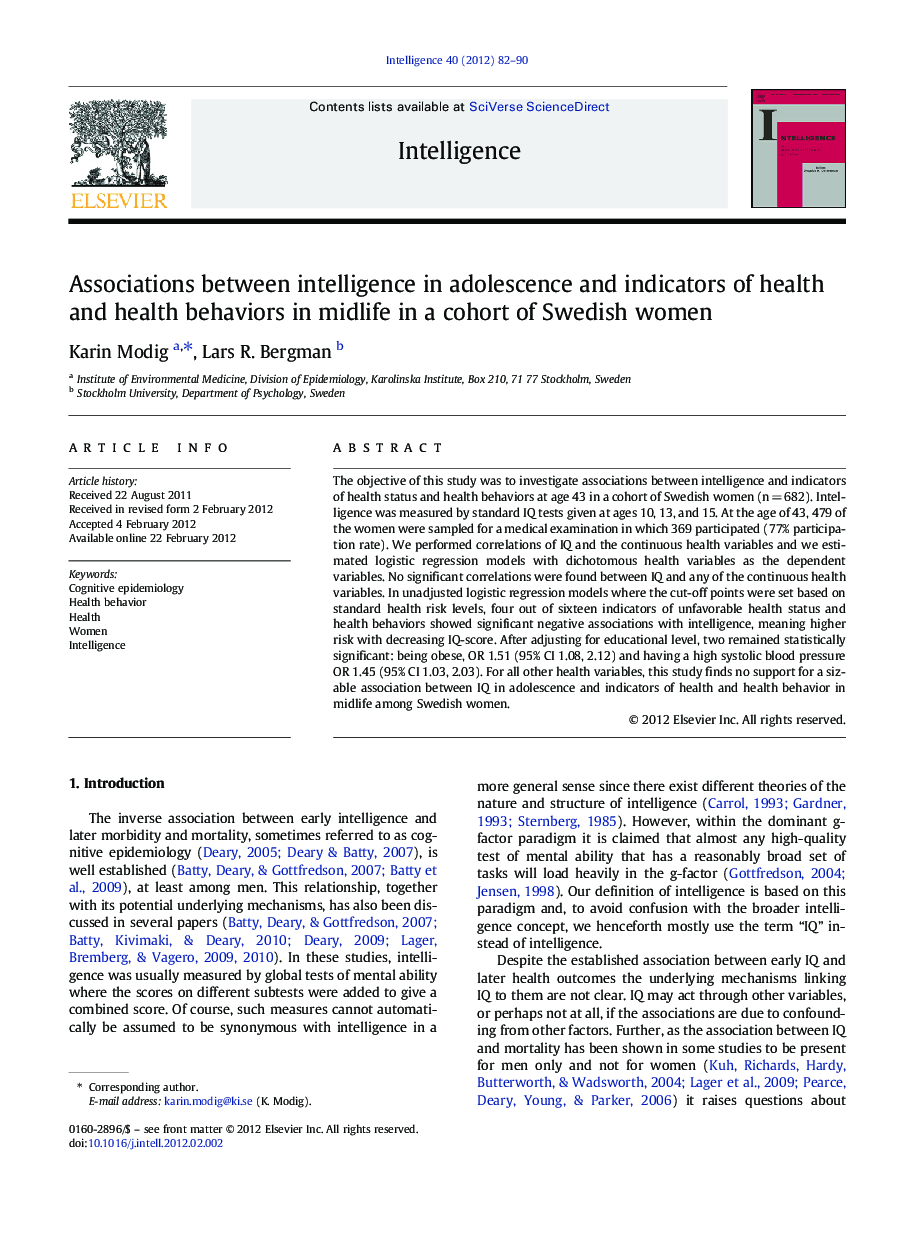| Article ID | Journal | Published Year | Pages | File Type |
|---|---|---|---|---|
| 929097 | Intelligence | 2012 | 9 Pages |
The objective of this study was to investigate associations between intelligence and indicators of health status and health behaviors at age 43 in a cohort of Swedish women (n = 682). Intelligence was measured by standard IQ tests given at ages 10, 13, and 15. At the age of 43, 479 of the women were sampled for a medical examination in which 369 participated (77% participation rate). We performed correlations of IQ and the continuous health variables and we estimated logistic regression models with dichotomous health variables as the dependent variables. No significant correlations were found between IQ and any of the continuous health variables. In unadjusted logistic regression models where the cut-off points were set based on standard health risk levels, four out of sixteen indicators of unfavorable health status and health behaviors showed significant negative associations with intelligence, meaning higher risk with decreasing IQ-score. After adjusting for educational level, two remained statistically significant: being obese, OR 1.51 (95% CI 1.08, 2.12) and having a high systolic blood pressure OR 1.45 (95% CI 1.03, 2.03). For all other health variables, this study finds no support for a sizable association between IQ in adolescence and indicators of health and health behavior in midlife among Swedish women.
► We investigated the association of IQ with health behaviors among Swedish women. ► No association was found between early IQ and indicators of health behavior in midlife. ► No association was found between early IQ and indicators of health status in midlife. ► An association was however found between IQ and obesity and high blood pressure.
